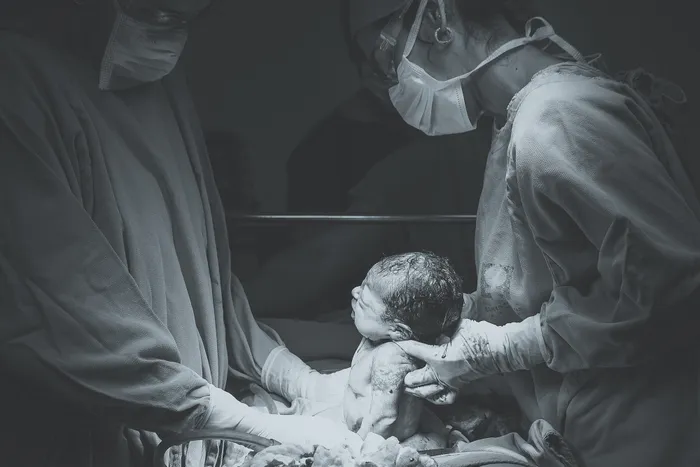Antibiotic-resistant sepsis still claims newborn lives in Africa: Europe and Africa in scientific collaboration to save lives and improve treatment

Sepsis remains a critical concern amidst the rise of antimicrobial resistance.Picture by Patricia Prudente /Unsplash
Antimicrobial resistance (AMR) has become a global healthcare crisis, leading to a rise in illness and deaths. Neonatal sepsis ranked as the third leading cause of neonatal mortality worldwide sees AMR accounting for 31.0% of deaths.
A study conducted by the Department of Medical Microbiology at the National Health Laboratory Service, Inkosi Albert Luthuli Central Hospital, sheds light on the poorly characterised AMR in neonates in Durban, South Africa. Published in 2021, it highlights the urgent need for action.
According to the World Health Organization (WHO), AMR poses a significant threat to the prevention and treatment of a growing range of infections caused by bacteria, parasites, viruses, and fungi.
This occurs when microorganisms develop resistance to medications, rendering some conditions challenging or impossible to cure. Consequently, infections persist in the body, increasing the risk of disease.
Now Europe and Africa are collaborating on a project, known as SNIP-AFRICA, to improve the treatment of infections in newborns and reduce mortality rates in hospitals across Africa, where sepsis remains a critical concern amidst the rise of antimicrobial resistance.
Funded by the European Union through the Global Health EDCTP Programme, SNIP-AFRICA will conduct an adaptive trial to identify the most effective drug regimens and doses for challenging-to-treat infections and sepsis, which pose a grave threat to newborns in neonatal units throughout sub-Saharan Africa.
Carlo Giaquinto, Professor of Pediatrics at the University of Padova and President of Fondazione Penta ETS (Italy), who serves as the project coordinator, underlined the significance of SNIP-AFRICA, stating, "This landmark project brings together leading scientists from Africa and Europe to tackle this major global health challenge. We believe that it will enable us to identify new and improved treatments for newborn sepsis, a leading cause of death among African newborns."
Sepsis is a life-threatening condition that occurs when the body's response to an infection damages its tissues and organs.
In newborns, sepsis is often caused by bacteria that have developed resistance to antibiotics, making it more challenging to treat. The urgency to address this issue is paramount, as the lives of countless newborns in Africa hang in the balance.
Every year, 214,000 newborn babies die of sepsis that has become resistant to antibiotics, making it a major health threat worldwide.
Low and middle-income countries, especially in Africa, are particularly affected by this problem due to the lack of resources for diagnosis and treatment.
What’s more, the heterogeneous nature of sepsis means that relevant research questions may vary greatly from one hospital to another, posing a challenge for traditional clinical trials to comprehensively grasp the complexities and variations of this condition, and to find treatments suitable for multiple settings, explained Carlo Giaquinto, Professor of Paediatrics.
“SNIP-AFRICA trial is a critical step in the fight against newborn sepsis,” said Julia Bielicki, Senior Researcher at the Centre for Neonatal and Paediatric Infection of St George’s University of London (United Kingdom), and SNIP-AFRICA scientific coordinator. “We are excited to see this project get underway, and we are confident that it will make a significant difference in the lives of newborns in Africa.”
The trial plans to enrol 1 200 neonates in six neonatal intensive care units in Ghana, Kenya, South Africa and Uganda. The first patients are expected to be enrolled in June 2025.
To ensure the long-term sustainability of the SNIP-AFRICA platform, the Consortium is committed to investing in the capacity building of African researchers and clinicians.
This investment aims to empower them to develop and implement future adaptive trials, fostering a culture of knowledge-sharing and collaboration.
Through this project, the goal is to establish a robust network of trained investigators and sites capable of designing and conducting complex clinical trials, even in challenging environments.
The coordination of SNIP-AFRICA will be led by Fondazione Penta ETS, with scientific oversight provided by St George's University of London. Stellenbosch University will play a significant role in the majority of work packages.
Professors Adrie Bekker and Eric Decloedt will lead the working group focused on accelerating African neonatal sepsis pharmacokinetic trials to optimise antimicrobial treatment for neonates.
Stellenbosch University will also facilitate African capacity building within the SNIP-AFRICA consortium, providing training in analytical quantification of antimicrobial plasma concentrations and pharmacometrics modelling to optimise dosing.
Professors Adrie Bekker, Angela Dramowski, and Andrew Whitelaw will actively contribute to the NeoSEP Part2 trial, in which Tygerberg Hospital will serve as a study site.
Within NeoSEP Part 2, novel antibiotic regimens will be evaluated against the standard of care for sick neonates.
Additionally, microbiological surveillance data will be collected to inform antibiotic choices for the treatment of neonatal sepsis.
The Consortium comprises ten project partners from European and African countries, bringing together a diverse group with extensive experience in neonatology and the design and implementation of randomised controlled trials in Africa, including adaptive trials.
SNIP-AFRICA's ultimate ambition is to drive research innovation in severe childhood infections, specifically neonatal sepsis.
By incorporating novel elements of adaptive trial design, the project aims to generate evidence that will improve the antibiotic treatment of this life-threatening condition.
This advancement will significantly enhance the well-being of newborns and infants, who are at the highest risk of infections caused by difficult-to-treat bacteria.
By using novel adaptive trial design elements, the project will generate evidence to improve antibiotic treatment of this deadly condition.
This will significantly improve the well-being of newborns and infants, who are at the highest risk of infection from difficult-to-treat bacteria.